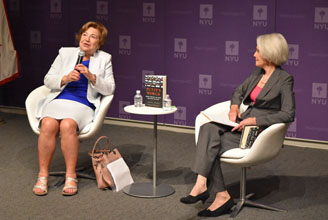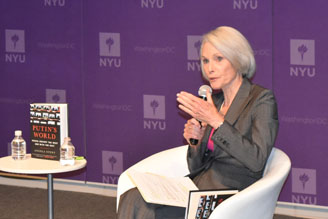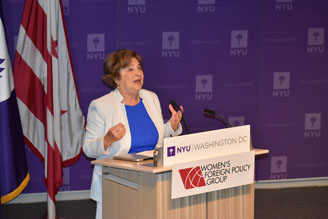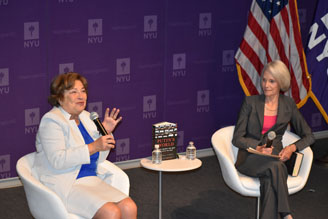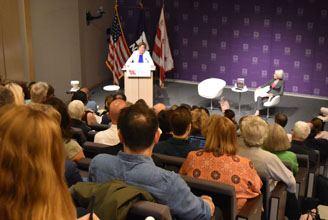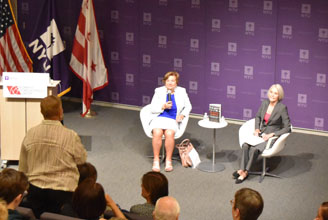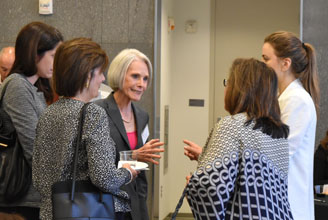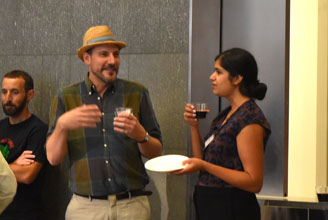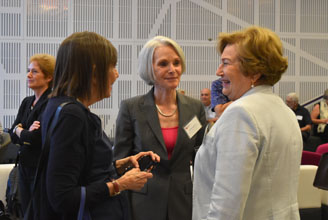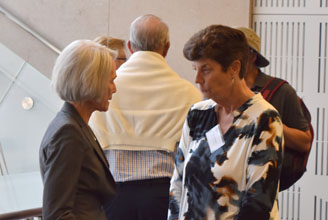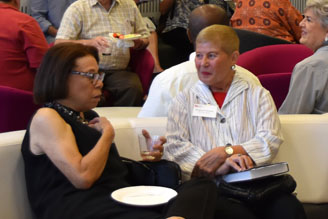|
AUTHOR SERIES
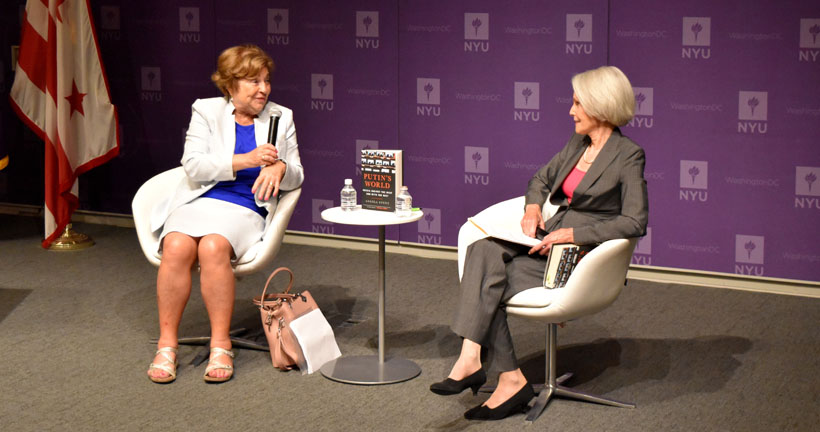
Putin's World: Against the West and with the Rest September 9, 2019 | Washington, DC
Angela Stent, Georgetown University
Jill Dougherty, Wilson Center
Co-sponsored by NYU Washington, DC
Video | Photos
On September 9, 2019, author Angela Stent discussed her newest book, Putin's World: Against the West and with the Rest, with moderator Jill Dougherty, former CNN Moscow Bureau Chief and Correspondent. The conversation covered the implications of Russia's expanding global presence, its future ambitions, and relations with the West. The program was co-sponsored by NYU Washington DC.
Stent opened the event with an overview of Russia’s deteriorating relationship with the West. After the fall of the Soviet Union, many Western nations assumed Russia would integrate with the West. However, she explained that this view was based on a misunderstanding of Russians’ idea of themselves, which--especially under Putin--is often grounded in opposition to the West, and that Russia does not want to be integrated with the West. According to Stent, the US-Russia relationship is the worst it has been since Gorbachev was in power; the fact that Russia is a “toxic domestic issue” within the United States adds an additional hurdle. Nonetheless, the US could still find a more stable relationship through increased flexible cooperation with Putin.
In Europe, Dougherty and Stent noted that while Russia’s relationship with Germany has likewise become strained, France may be opening the door to cooperation. Stent mentioned that with the weakening of Germany’s economy and its declining influence in EU, France is taking the opportunity to create stronger ties with Russia and assert its power within the EU.
Despite tensions with the West, Russia has closer relations with many non-Western nations, most notably India and China. Dougherty noted the heavy Chinese influence within Russia, with street signs and billboards in Mandarin and an influx of Chinese tourists. Stent explained that China and Russia have a strategic partnership based on the mutual goal of reducing the United States’ influence around the globe, with trade that has grown to approximately $100 billion and significant military cooperation.
Another critical region in Russia’s foreign policy is the nearby nations that fall into Russia’s traditional sphere of influence. Throughout its history, Stent asserted that Russia has favored a policy of “defensive expansion,” and it has continued to exert influence over its neighbors. She further explained that Russia is unlikely to cease its involvement in either Ukraine or Georgia, both very contentious areas of Russia’s neighborhood. On whether the recent prisoner exchange with Ukraine might be a sign that peace is on the horizon, Stent asserted that it is still too early to tell. Though Ukrainian President Volodymyr Zelensky appears willing to compromise with Russia to end the conflict, Russia continues to insist on a special status with more autonomy for certain regions in the Donbas, which is unacceptable to Ukraine. Stent also did not believe Crimea would be returned to Ukraine in the foreseeable future.
When asked who comes after Putin, Stent offered the quote, “Those who know don’t talk, and those who talk don’t know.” She went on to explain that there is quite a bit of speculation, but that it is difficult to predict what will happen after Putin leaves power--though it is doubtful that that will be when his term ends in 2024. Stent underlined that we should keep in mind that the Russian people are not synonymous with the Kremlin, and an increase in activism in recent years demonstrates that the Russian people are beginning to favor change over stability. While a return to more stable relations between Russia and the West might be possible, Stent does not foresee any significant improvement in the relationship while Putin remains in power.
|



